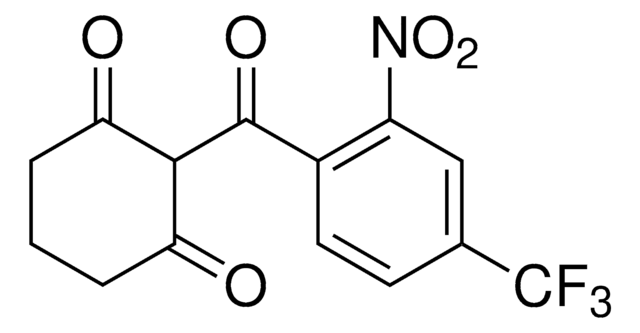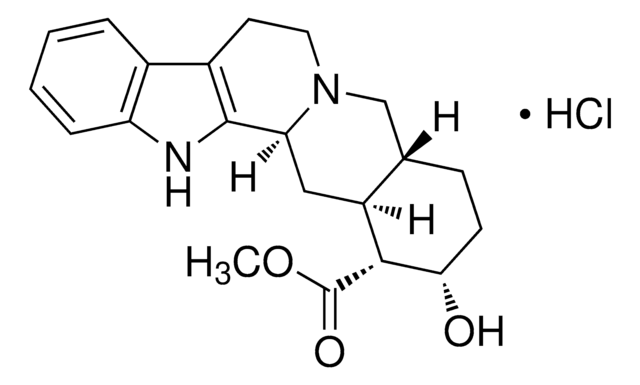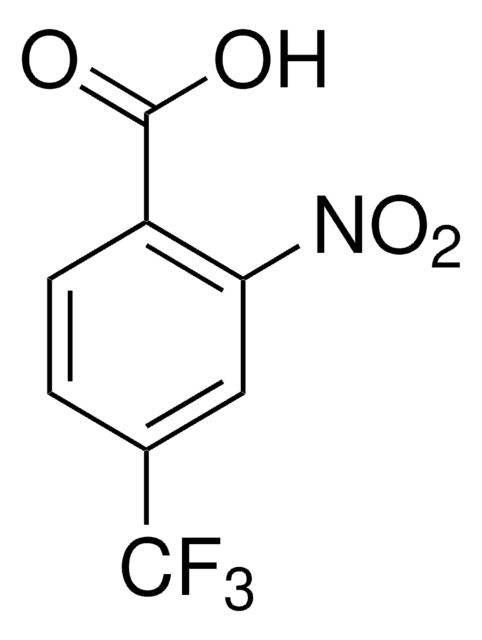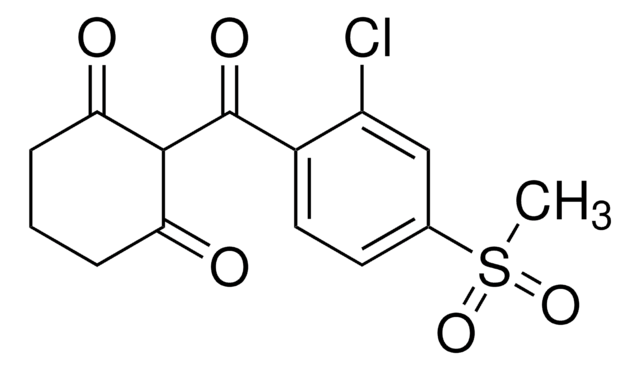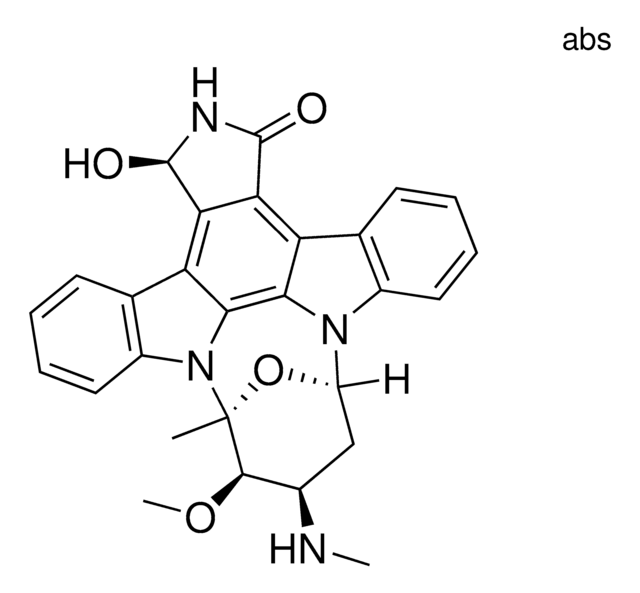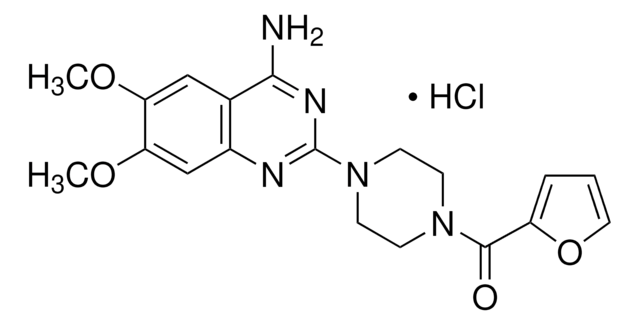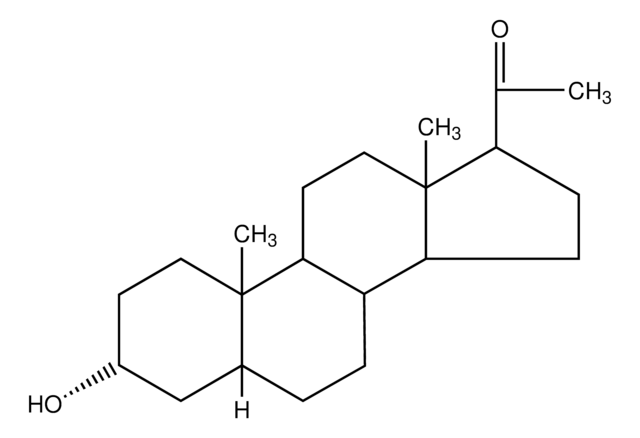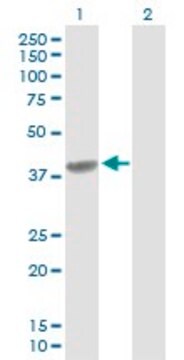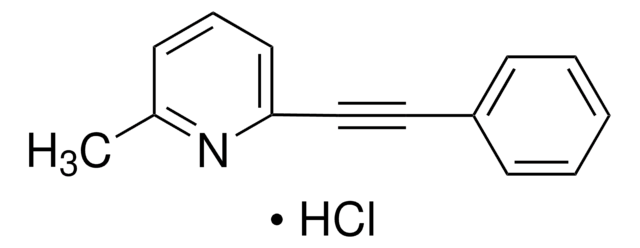SML0269
Nitisinone
≥95% (HPLC)
Synonym(s):
2-(2-Nitro-4-trifluoromethylbenzoyl)-1,3-cyclohexanedione, 2-[2-Nitro-4-(trifluoromethyl)benzoyl]cyclohexane-1,3-dione, NTBC, Nitisone, SC 0735
About This Item
Recommended Products
assay
≥95% (HPLC)
form
powder
color
white to brown
solubility
DMSO: ≥5 mg/mL
storage temp.
−20°C
SMILES string
[O-][N+](=O)c1cc(ccc1C(=O)C2C(=O)CCCC2=O)C(F)(F)F
InChI
1S/C14H10F3NO5/c15-14(16,17)7-4-5-8(9(6-7)18(22)23)13(21)12-10(19)2-1-3-11(12)20/h4-6,12H,1-3H2
InChI key
OUBCNLGXQFSTLU-UHFFFAOYSA-N
Gene Information
human ... HPD(3242)
Looking for similar products? Visit Product Comparison Guide
Application
- to induce liver injury
- to treat Ixodes scapularis tick cells to inhibit the activity of hydroxyphenylpyruvate dioxygenase
- in supplemented water to block the accumulation of toxic metabolites in human hepatocyte engrafted mice
- to study its effect on bacterial pyomelanin production
Biochem/physiol Actions
Storage Class
11 - Combustible Solids
wgk_germany
WGK 3
flash_point_f
Not applicable
flash_point_c
Not applicable
Certificates of Analysis (COA)
Search for Certificates of Analysis (COA) by entering the products Lot/Batch Number. Lot and Batch Numbers can be found on a product’s label following the words ‘Lot’ or ‘Batch’.
Already Own This Product?
Find documentation for the products that you have recently purchased in the Document Library.
Our team of scientists has experience in all areas of research including Life Science, Material Science, Chemical Synthesis, Chromatography, Analytical and many others.
Contact Technical Service